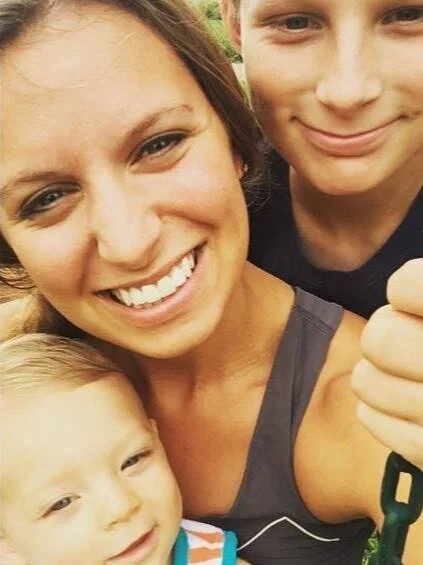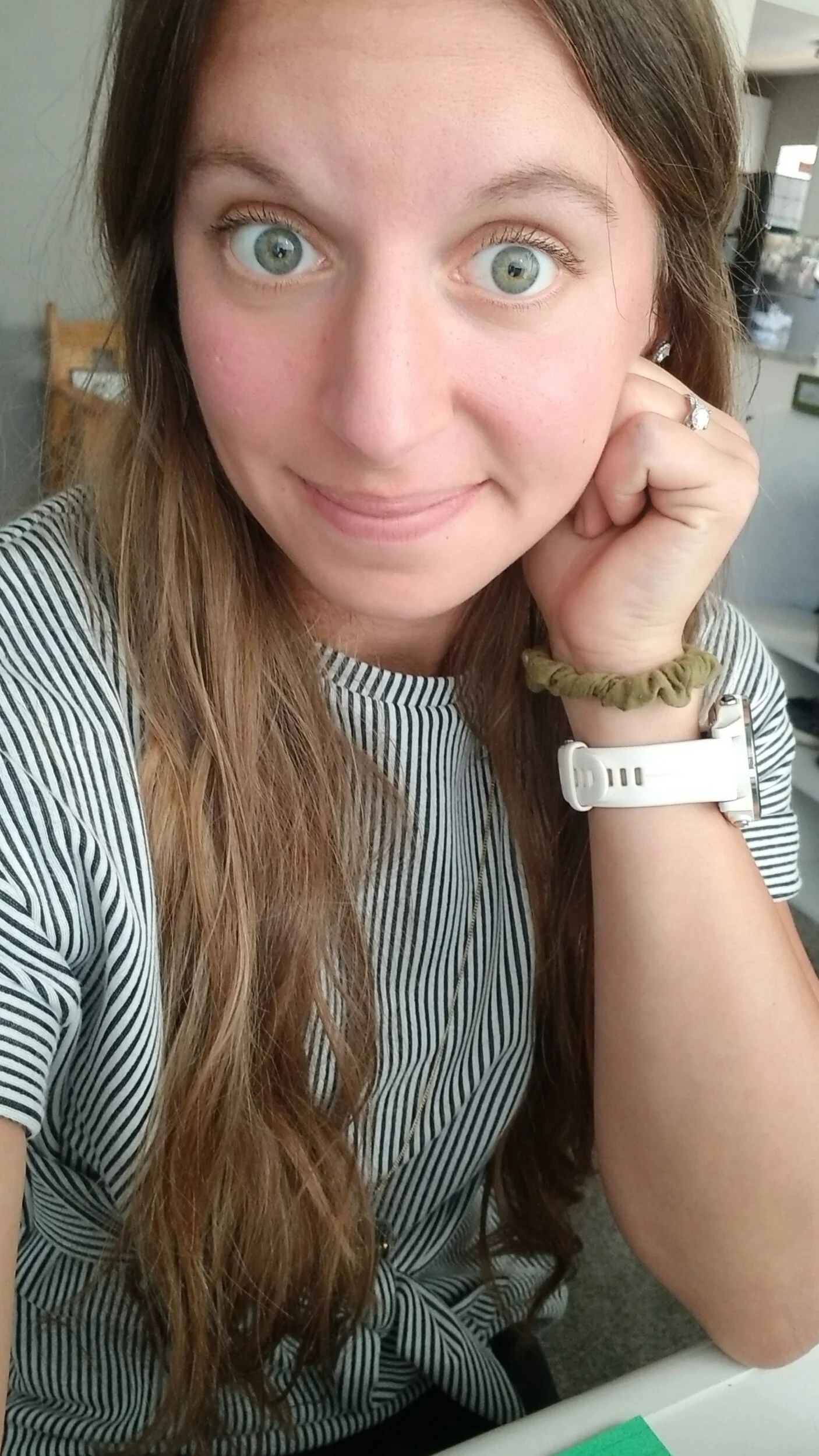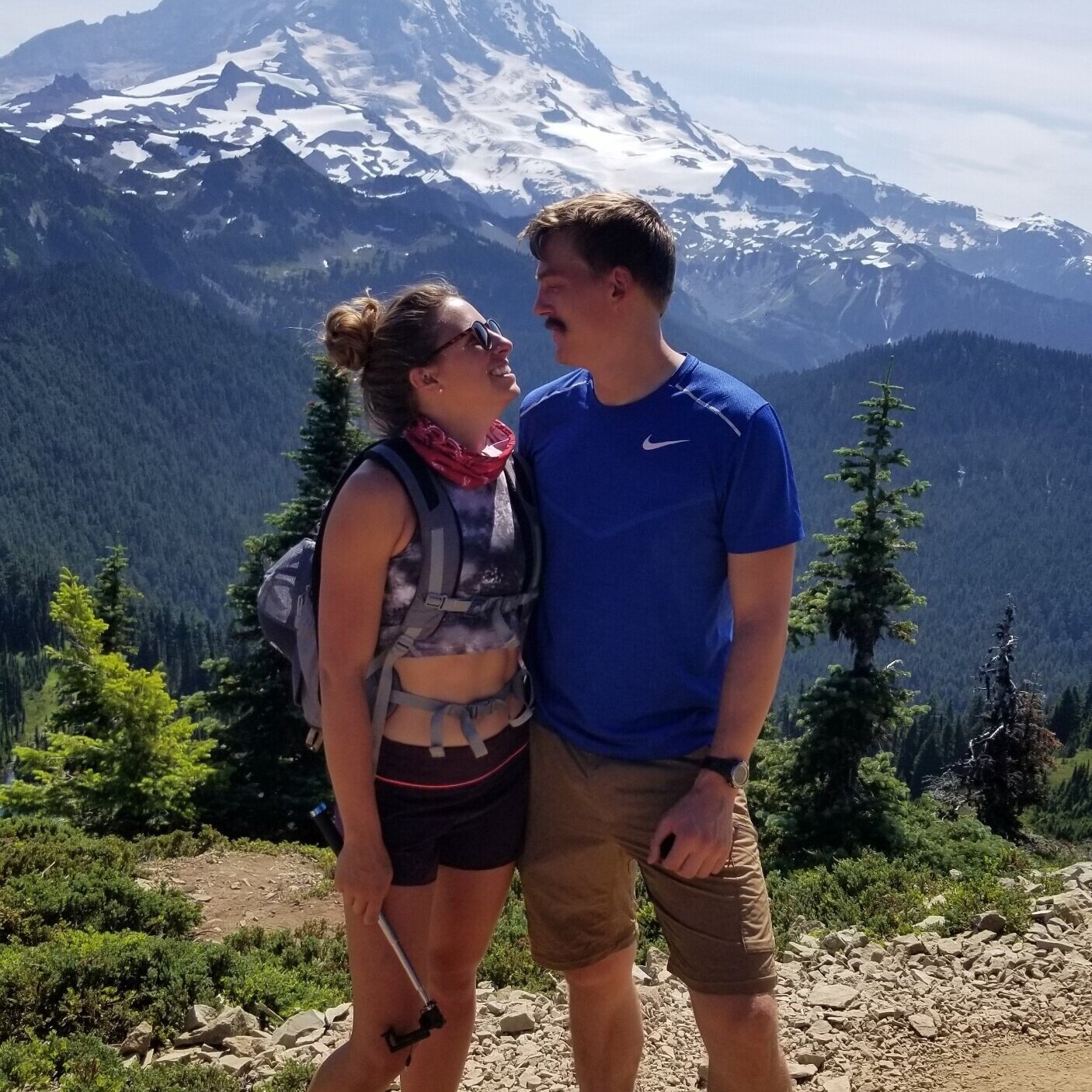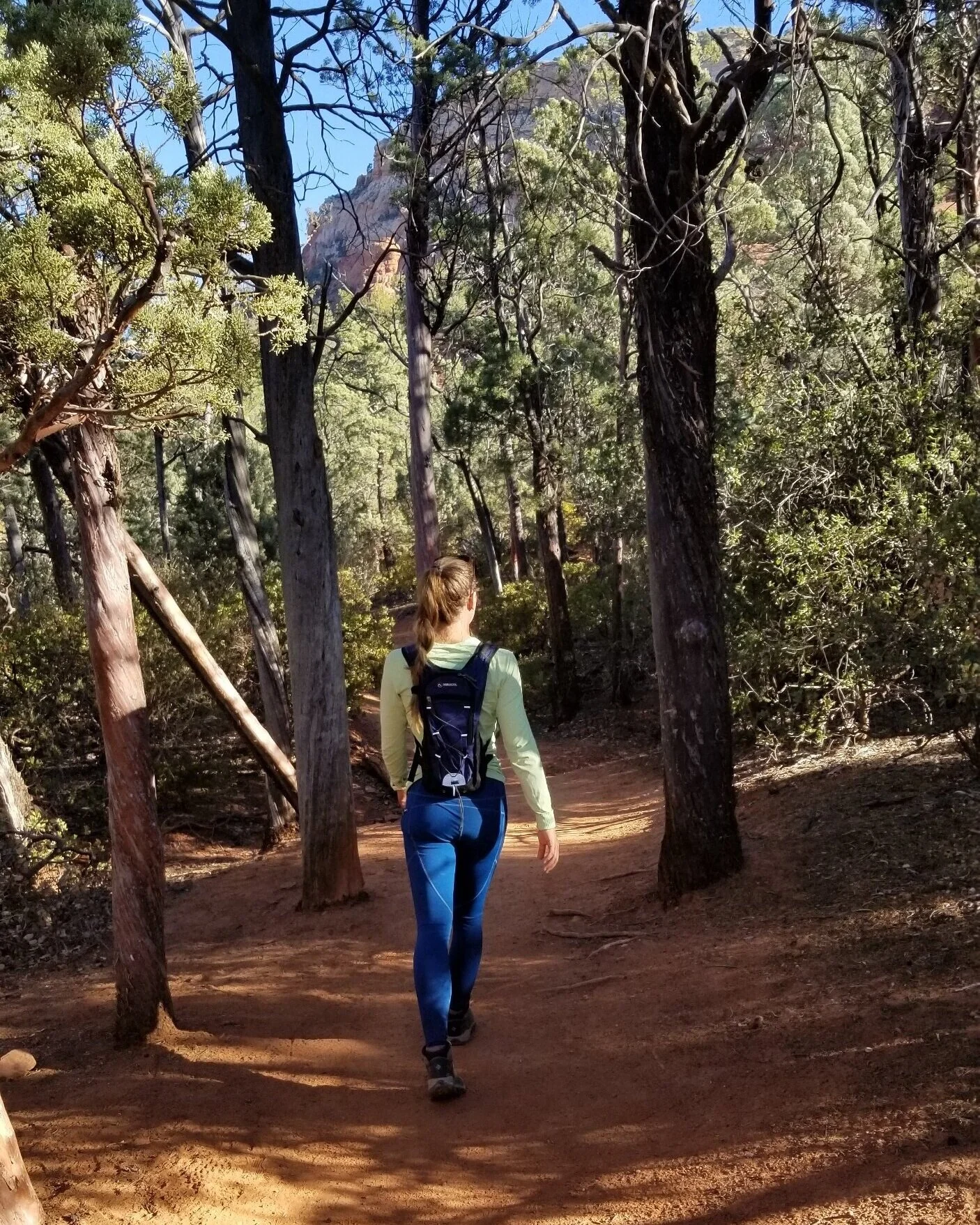Unemployed —> Employed
WHOOF - what a few month ride this has been applying to jobs, interviewing for jobs, applying more for jobs, waiting to hear back, interviewing more, applying more, repeat. There were many factors that played into my 2020 job search - some of which I knew would present obstacles (cough, COVID, cough) and others I learned along the way.
I started my job search seriously around early Nov 2020. I accepted a position mid-January & worth noting, it’s a contract role. These type of roles are very common in Med Device & also how I got into engineering in the first place; basically, you get no benefits, but get more cash money to make up for no benefits. There are many pros and cons to this way of work, but I will not bore you with that here - let’s just say I was open to both types of work being I am on Jake’s benefits plan already & with Corporate America, I sometimes believe low commitment is best #sugaMomma :)
Challenges that presented themselves were of course COVID hiring freezes, Zoom interviews, complicated role situations due to the current environment, and the HOLIDAYS. Another more personal obstacle aside from an employment gap was moving from a more traditional engineering role into Program/Project Management. I have been in the medical device industry for about 6 years now and was mostly pursuing roles in industry, so it was the first time I felt like I really had some stake in the game with my job search. I had requirements I wasn’t willing to budge on & was willing to pass on an opportunity if they didn’t align (remote flex, strong leadership in place, a company I believed in, an interesting role, etc). I finally felt like I was closer to “Senior” status versus the “Freshmen” I once was. But at the same time, I was chasing a title I didn’t have in the past, so getting recognized was a bit more of a challenge than usual.
Read on for issues or surprises that came up after going through the process in a WW pandemic after 6 months of willful & blissful unemployment!
1) Employment Gap :
Of course I expected questions about this, although I don’t think it’s anyone’s business - let’s talk about if I’m qualified for this role or not. But of course it came up & I have no shame explaining my desire for a break from the corporate world to travel & get away from the politics of my last company. However, I definitely hesitated with the amount of honesty to use here as I noticed a variety of reactions to my response.
Opt A) “I left because I had a dream of traveling around the US” came with the reaction of “is she dependable?” “is she a flight risk?” “what’s her level of dedication"?” The thing I like about answering this way is that it sheds a lot of light on the flexibility of the management I was interviewing with. I received a variety of responses to this, most being extremely delightful and wanting to tell me about this person they saw on Netflix or Facebook that made a documentary on a school bus. However, even with the an intrigued response, when it came to getting the job, I would NOT say this approach “helped” me. I am an avid adventurer, I don’t plan to stop doing that, I will need remote flexibility, I do believe I can do a job well at the same time. But I still can’t help but think it appeared to be a “risk” category. Most leaders don’t like to hear about competing priorities…fair or not, it’s the truth.
Opt B) if I took a different position of “I was no longer aligned with leadership or company direction” (both were true), the questions about “what exactly weren’t you aligned with?” and “did you leave the company on your own account?”. I found myself having to defend my position over and over & it led to a lot of rabbit holes. It felt like it left questions of “did she get fired” or “did she walk out” which I made sure I elaborated on, but I also think it left them with some question marks - “will she ruffle feathers”, “will her impatience be a problem”, etc. I found it challenging to elaborate without getting into too many details and also trying to stay positive about the experience rather than ragging on what I didn’t like. Of course, once you start talking about poor leadership, people either really hear what you are saying OR they may see you as a “challenger” - someone tough to please & bringing in baggage.
Opt C) this is what I resorted to at the end - giving a combo answer of A and B, while trying my best to stay high-level. “There were a couple reasons - I wanted to expand my role & leadership was too chaotic to really be able to promise this & also had a dream of traveling cross-country - the 2 aligned with timing, mixed with COVID slowing the world down.” When in doubt, blame COVID. :P
2) Side hustles / consuming hobbies :
This one blends with the previous road trip explanation as well, but I hadn’t really thought about this as something to keep to myself when interviewing. However, I could definitely feel a shift in responses when I explained my love of coaching, traveling, and other side hobbies. Just as I mentioned above, some leaders want your full dedication to your Corporate role which I am not that girl and will never let my job suck the life out of me, BUT if you want the job, keep the explanation lite. Make it sound casual, more of a hobby, whether it is or isn’t.
Having been on the other side of the table hiring, I understand as an employer you want dedicated employees. I understand there are times when an employees side biz gets in the way or creates a conflict of interest. BUT I also think side hustles show a ton of determination and creativity which you cannot buy & in my opinion, I always think it shows a lot of initiative (unless they are trying to start the same company on the side…RED FLAG).
For this topic, my advice would be to judge the crowd - try a first pass with throwing it into conversation (what do you do outside of work? Oh funny you should ask…) If you don’t get much of a response, I would breeze past it, if you truly want the job. If the side biz is really important for you and will interfere with traditional hours, I would actually suggest being transparent about this & adding this to your “non-compromise-able requirements”. Traditional folk typically don’t understand side hustles…keep the transparency to those 35 and under :P
3) Recruiting agencies :
As I mentioned, contract roles are really popular in med device. Whether it’s due to budget approvals, hiring freezes, or special projects, contract positions are just easier to get approval for in most companies. However, contract roles & honestly a lot of full time roles go through recruiting agencies. Typically, companies have a couple agencies they work with who can find talent. Contract roles pretty much fully utilize this avenue (aka you will not see the role posted on the companies job page), but full time roles usually use their own job board as well as recruiters.
BUT recruiting agencies provide a lot of noise (it’s the nicest way I can say it). You will get a LinkedIn message typically saying “Hey - we have an Engineering role with an esteemed client in the metro area - here is my calendar, set up time to talk”. No company listed, no salary listed, and no detail on the actual job aside from maybe a title if you are lucky! I ignore 90% of the messages I get from recruiters, but if you are considering contract roles, again it’s one of the only avenues aside from internal connections to get access to the role. You will also notice many companies work with multiple firms - you will get pinged about the same job from multiple recruiters. It’s a lovely & complex area to navigate!
Recommendations:
Find no more than 3 recruiting companies/connections you respect & build a network with them
Don’t feel bad saying “no thanks” - there are a lot of annoying & bad recruiters I have dealt with
Negotiate salary up front!!!! Contract companies will ask you your salary requirements typically on the first call to discuss the position. Once you give them a number, they will NOT budge! Be prepared for this.
Find out their company “scheme” - some only do contract, some do all types, some work in very specific niches, some only do small co’s, etc.
4) Remote flexibility / COVID impacts :
This is a really important requirement for me & I honestly feel like many people and places have come around to it for COVID, but it also took me out of at least a few opportunities. One job was listed as 100% remote, out of Cali. I went through 5 rounds of interviews, for the 5th person to ask me if I was willing to relocate. Radio silence from the company when I said no. Would have been nice to know in round 1!
But I went back and forth with this a lot - do I tell them now? Or do I try to go in and prove myself & then ask for it? In my experience, I have definitely seen more managers willing to work with me once they know I’m “good for it”. But in this job search, I went in clearly articulating my desire to have at least remote flexible. And mostly had good responses…again, this really shows how “forward” company structures are. Keep in mind what you are looking for and if it’s remote possible as well…resetting this expectation in the beginning is essential.
What I did notice is HOW early to bring this up. I would first get partway through the interview with the hiring manager (vs HR) before spending too much time on it. I found lots of people were on the edge about it right off the bat, but once they understood my experience of remote support & also got to know me a bit, they were much more open. You will find some jobs are listed as “REMOTE”, but others are not, yet you should not let that completely stop you!
5) It’s Casual :
In the past 2 months, I have probably gone through about 20+ interviews, including initial HR calls - all either via phone or Zoom. Out of those 20, I would say at least 16 were what I would consider VERY casual conversations. It seems to be the way interviews are going these days, which I appreciate, but also gives you less opportunity to demonstrate your competence (aka hard skills), but more opportunity to show how you communicate and if you would get along with the team (aka soft skills). I remember one interview was MAYBE 10 mins in (5 of me describing what I’m looking for) when the interviewer was like “okay - I’m good - you’re great!”. I was very thrown off & definitely did not feel like I got anything from the conversation.
Although I like the shift people are taking, I would still suggest finding creative ways to add in snip-its about your accomplishments or experience that are NOT necessarily super clear on your resume. I wouldn’t totally derail the conversation to do so, but if you can throw it into relevant conversation, it may be a win. Also completely essential, have questions ready for them so at least you can learn what YOU want about the role! Oh, and people love talking about themselves. 😉
Things that helped me :
Establish requirements so you know what you are and are not willing to compromise on.
Be transparent about your requirements - I am not great at negotiating salary, like at all. BUT I also know there is no point getting to interview 4 without discussing it unless you are okay with wasting large chunks of time or compromising (and then they aren’t really requirements, but wants). I ruled out many recruiters simply due to their salary ranges they could offer. & that’s okay! At the end of the day, I didn’t need 15 offers, I needed ONE that met my requirements. Also, try to do your research on salary prior to have an estimate of what is fair :)
Being okay with rejection - this was a toughy for me, and even after a few, it’s not a strength. Up until this round of job searching, I had a 100% track record with getting offers once I interviewed. I’m a pretty decent communicator, I am professional, I have the technical prowess, and I like to throw in a joke or 2. I interviewed through round FIVE with 3 different roles - I received an offer from 1 which means I received 2 rejections (actually one has totally ghosted me after telling me I was top candidate, so now reading through the lines…)
Letting go. A huge roadblock for me with job searching is having patience with the process. It’s a requirement, but I’m not good at it. Once I interviewed & sent a thank you follow-up note, all I could do was wait. & the waiting drove me mad. Recognize when things are out of your control & just let it be.
Ask a lot of questions - I felt I was able to get a lot of clarity from leadership from asking good questions. Sometimes, they will give you insight on where you stand versus other candidates or how many candidates you are working against. I often ask “what is my resume lacking” which is typically a sneaky way to get info on your competition.
Being in a good financial place - this was really huge, mostly for holding myself to my standards. If you are job searching like your life depends on it (which for many people, it does), you will likely interview like your life depends on it. Although I understand that may be truthful of your situation, try your best to stand your ground & not sound desperate. Similar to dating, desperation does not get call-backs. :/
A good example of this is when the question of “what are you looking for in your next role” comes up. For people that need a job, it can be tempting to just read some lines from the role description. NEWS FLASH: this will come across as you don’t actually know what you want or you are desperate for a job - neither attracts employers
Summary :
Most of all, job searching and interviewing are vulnerable places to be - it feels a lot like dating to me (not that I’ve been in the game recently -LOL). You are both looking for right fits over a long-term…interviews are like speed-dating, but instead of 10 minutes, you have about 30 with each person to figure out how you would get along, would they be a good leader, do they know their shit, would they have your back, could you get a beer with them? I like to look at interviews as they are as much for YOU as they are for THEM; they just happen to get the final decision. So staying authentic is essential - for you and them. No one wants a surprise on Day 1. However, interviewing can really mess with your mind and make you question yourself. I’m a confident person generally, but still found myself asking “did I answer that right?” or “why haven’t they called me back yet?” or “am I actually worth that salary?” and so on. But in the end, being your authentic self and sticking to your needs is always the right thing to do. And remember, you only need ONE person to take a chance on you. Keep your head up and don’t compromise :)
Peace, love, & stay true to YOU,
yo’ girl Jen
“Instead of working toward retirement, work toward your ideal lifestyle. There is usually a path to get there in a few years instead of a few decades.”




